This article was co-authored by Chris M. Matsko, MD. Dr. Chris M. Matsko is a retired physician based in Pittsburgh, Pennsylvania. With over 25 years of medical research experience, Dr. Matsko was awarded the Pittsburgh Cornell University Leadership Award for Excellence. He holds a BS in Nutritional Science from Cornell University and an MD from the Temple University School of Medicine in 2007. Dr. Matsko earned a Research Writing Certification from the American Medical Writers Association (AMWA) in 2016 and a Medical Writing & Editing Certification from the University of Chicago in 2017.
wikiHow marks an article as reader-approved once it receives enough positive feedback. In this case, several readers have written to tell us that this article was helpful to them, earning it our reader-approved status.
This article has been viewed 177,092 times.
Traditional treatments for hemorrhoids include using an astringent to help reduce swelling. Reducing swelling can help with pain and discomfort as well. The main ingredient in TUCKS® medicated pads is witch hazel, which is an herbal astringent. Before using TUCKS®, you will need to clean the area using a Sitz bath or washcloth. Hemorrhoids should improve within a few days to a week. If not, then make sure to call your doctor.
Steps
Preparing to Use a TUCKS® Pad
-
1Prepare a bath. Before you use a TUCKS® pad, you will need to ensure that the anal area is clean. The best way to clean the anal area is to take a warm Sitz bath. Sitz baths only require a few inches of water to soak the anus but you can take a full bath if you prefer. If you prefer the traditional Sitz bath, just fill the tub with a few inches of water.[1]
- You can also buy a Sitz bath at a pharmacy or medical supply store. These are small basins that you can attach to your toilet seat and use to wash your anal area.[2]
-
2Add Epsom salts to the water. Add about one cup of Epsom salts to a full bathtub or two to three tablespoons of Epsom salts for a few inches of water in the tub. Keep the water warm, but not too hot. Repeat the bath two times per day.[3]Advertisement
-
3Use a washcloth if you cannot take a bath. If you cannot take a bath, get a clean, cotton washcloth and soak it in warm water. Apply the compress for about 10–15 minutes, directly on the hemorrhoid three times per day or before each time you use a TUCKS® pad.
-
4Dry off your anus. Using a clean cotton towel, dry your anus well.[4] Make sure that you pat the area dry. Do not rub the area because this may make the hemorrhoid worse.
Using a TUCKS® Pad
-
1Read the package instructions. Instructions for use may vary by brand and product type, so it is important to read and follow the instructions. Make sure that you read the package instructions before using TUCKS® and use the product as instructed.[5]
-
2Wipe the anal area with a TUCKS® pad. After you have cleaned your anal area using a Sitz bath or washcloth, use one TUCKS® medicated pad to gently wipe the anal area. It is important to be gentle as you wipe the hemorrhoid.
- Do not rub the area too hard or you may irritate the hemorrhoid.
- Do not push the wipe into the rectum. Only use the pad on the outer part of your anus and anal region.
-
3Dispose of the used TUCKS® pad. After you have finished using the pad, throw it in the garbage or flush it down the toilet. TUCKS® pads are biodegradable, so it is okay to flush them down the toilet.
- Do not reuse the pads.
-
4Repeat the process six times daily. For best results, you should use TUCKS® pads six times per day. If you have another bowel movement during the day, repeat the cleaning and medicating process. Remember to clean the area gently.
-
5Observe the area for signs of improvement. By keeping the area clean and using TUCKS® pads, you should notice some improvement to your hemorrhoids within a few days days. If there is no improvement, then call your physician.
Using Other Pain Relief Methods
-
1Apply some 1% hydrocortisone cream to help relieve itching. To deal with itchiness in your anal region, apply some 1% hydrocortisone cream or Preparation H™. Apply a small amount of cream to the outside of your anus. Make sure that you read the package instructions before using.[6]
-
2Use an ice pack. Ice packs can help reduce the swelling associated with hemorrhoids. Just make sure that you do not use them for too long. Limit your use to five to 10 minutes at most each time.[7]
- To ice a hemorrhoid, wrap an ice pack in a paper towel and hold it on the anal area for five to 10 minutes.
-
3Wear cotton underwear. Wearing cotton underwear may help to ease discomfort by reducing moisture in your anal region. Avoid wearing any synthetic fabrics as these tend to accumulate more moisture.[8]
-
4Lie on your side. You may need to avoid sitting or lying on your backside until the hemorrhoid heals. Try laying on your side at night and do not sit for too long. It may also help you to sit on a doughnut pillow or even a regular cushion.[9]
-
5Take an over-the-counter pain reliever. If the pain is distracting, then taking some acetaminophen or ibuprofen may help. Follow the package instructions and do not exceed the recommended dosage. If the pain is still present after taking an over-the-counter pain reliever, then call your doctor.[10]
Expert Q&A
Did you know you can get expert answers for this article?
Unlock expert answers by supporting wikiHow
-
QuestionWhat if a medicated pad is in the anal cavity and stays there?
 Chris M. Matsko, MDDr. Chris M. Matsko is a retired physician based in Pittsburgh, Pennsylvania. With over 25 years of medical research experience, Dr. Matsko was awarded the Pittsburgh Cornell University Leadership Award for Excellence. He holds a BS in Nutritional Science from Cornell University and an MD from the Temple University School of Medicine in 2007. Dr. Matsko earned a Research Writing Certification from the American Medical Writers Association (AMWA) in 2016 and a Medical Writing & Editing Certification from the University of Chicago in 2017.
Chris M. Matsko, MDDr. Chris M. Matsko is a retired physician based in Pittsburgh, Pennsylvania. With over 25 years of medical research experience, Dr. Matsko was awarded the Pittsburgh Cornell University Leadership Award for Excellence. He holds a BS in Nutritional Science from Cornell University and an MD from the Temple University School of Medicine in 2007. Dr. Matsko earned a Research Writing Certification from the American Medical Writers Association (AMWA) in 2016 and a Medical Writing & Editing Certification from the University of Chicago in 2017.
Family Medicine Physician
-
QuestionDo you leave the pad in your anal area for any period of time?
 Chris M. Matsko, MDDr. Chris M. Matsko is a retired physician based in Pittsburgh, Pennsylvania. With over 25 years of medical research experience, Dr. Matsko was awarded the Pittsburgh Cornell University Leadership Award for Excellence. He holds a BS in Nutritional Science from Cornell University and an MD from the Temple University School of Medicine in 2007. Dr. Matsko earned a Research Writing Certification from the American Medical Writers Association (AMWA) in 2016 and a Medical Writing & Editing Certification from the University of Chicago in 2017.
Chris M. Matsko, MDDr. Chris M. Matsko is a retired physician based in Pittsburgh, Pennsylvania. With over 25 years of medical research experience, Dr. Matsko was awarded the Pittsburgh Cornell University Leadership Award for Excellence. He holds a BS in Nutritional Science from Cornell University and an MD from the Temple University School of Medicine in 2007. Dr. Matsko earned a Research Writing Certification from the American Medical Writers Association (AMWA) in 2016 and a Medical Writing & Editing Certification from the University of Chicago in 2017.
Family Medicine Physician
References
- ↑ http://www.health.harvard.edu/diseases-and-conditions/hemorrhoids_and_what_to_do_about_them
- ↑ http://www.health.harvard.edu/diseases-and-conditions/hemorrhoids_and_what_to_do_about_them
- ↑ http://www.health.harvard.edu/diseases-and-conditions/hemorrhoids_and_what_to_do_about_them
- ↑ http://www.health.harvard.edu/diseases-and-conditions/hemorrhoids_and_what_to_do_about_them
- ↑ http://www.webmd.com/drugs/2/drug-7075/tucks+topical/details#
- ↑ http://www.webmd.com/a-to-z-guides/understanding-hemorrhoids-treatment-medref?page=2
- ↑ http://www.health.harvard.edu/diseases-and-conditions/hemorrhoids_and_what_to_do_about_them
- ↑ http://www.webmd.com/digestive-disorders/tc/hemorrhoids-home-treatment
- ↑ http://www.webmd.com/digestive-disorders/tc/hemorrhoids-home-treatment
About This Article
To use Tucks pads for hemorrhoids, first clean your backside. Use a Sitz bath or hold a clean, warm washcloth to your hemorrhoid for 10-15 minutes. After you’ve dried yourself, gently wipe the area again with a Tucks pad. Avoid rubbing too hard so you don’t irritate your hemorrhoid. You can dispose of your Tucks pad in the trash or flush it down the toilet. For best results, use Tucks pads six times a day. Whenever you have a bowel movement, repeat the process afterwards. For more tips from our Medical co-author, including how to reduce swelling with an ice pack, read on.
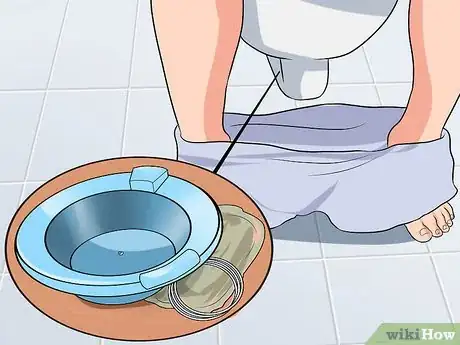
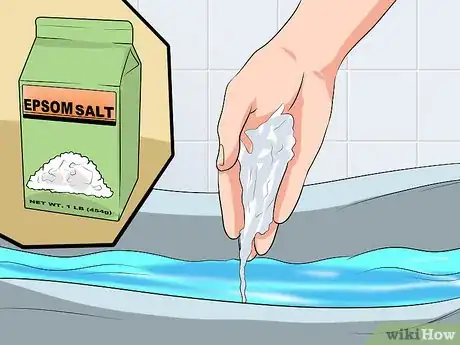
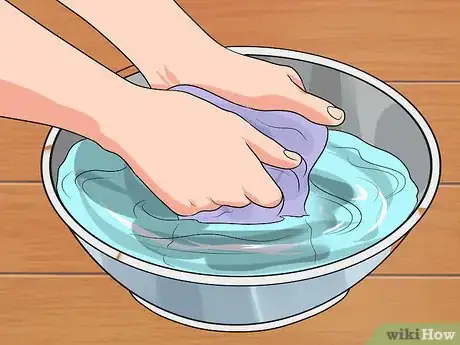
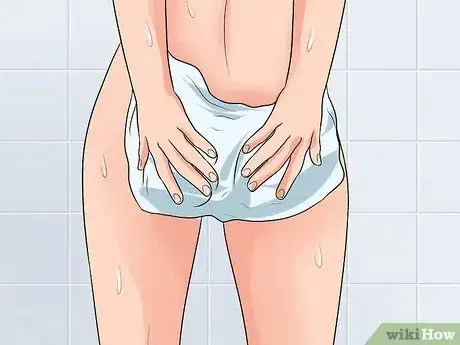
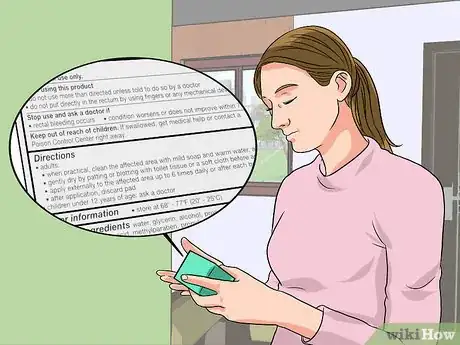
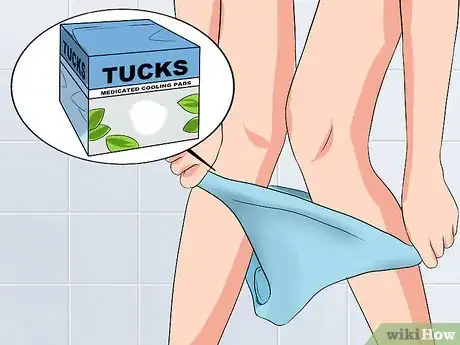
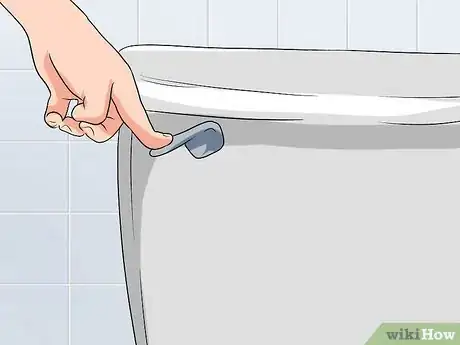
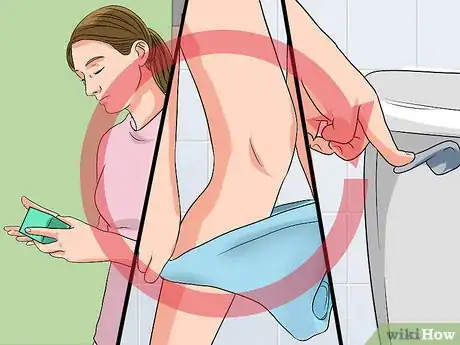
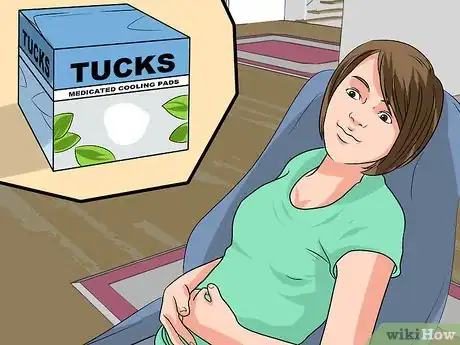
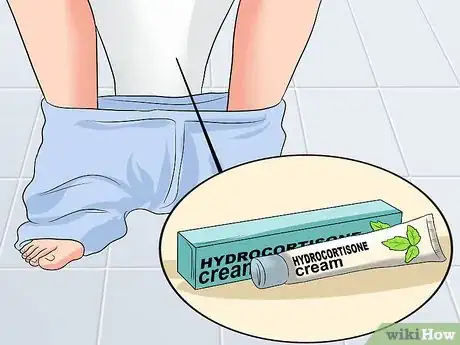
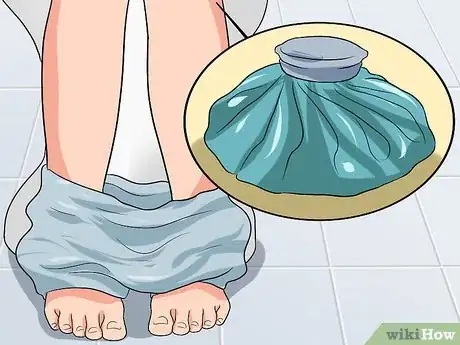
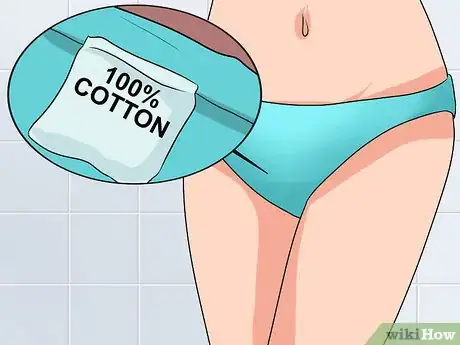
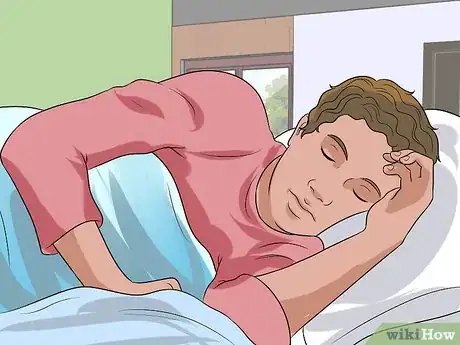
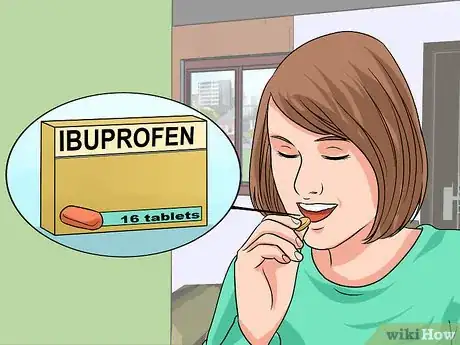
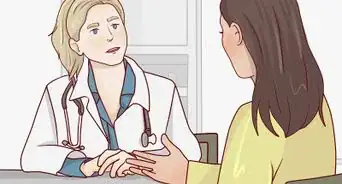

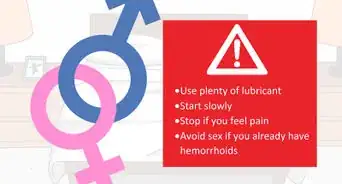
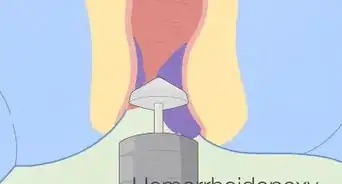
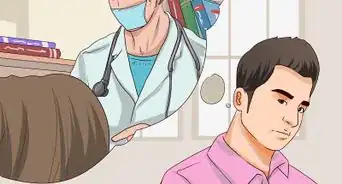
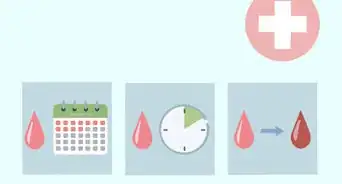

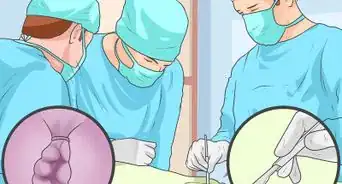
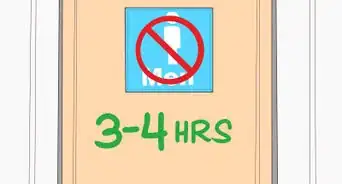
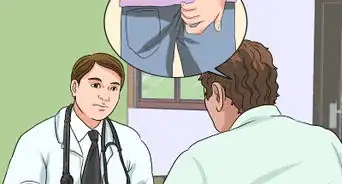
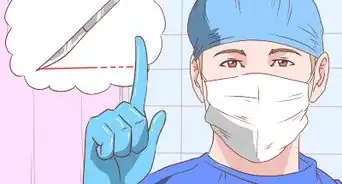
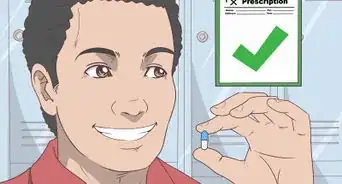
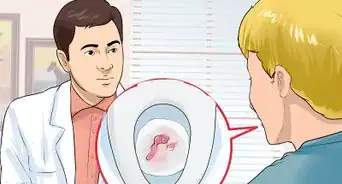
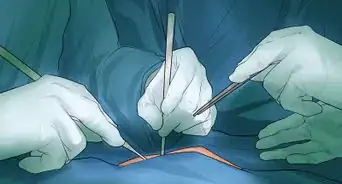









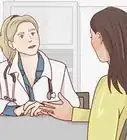

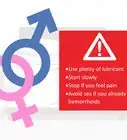
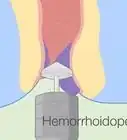



































Medical Disclaimer
The content of this article is not intended to be a substitute for professional medical advice, examination, diagnosis, or treatment. You should always contact your doctor or other qualified healthcare professional before starting, changing, or stopping any kind of health treatment.
Read More...